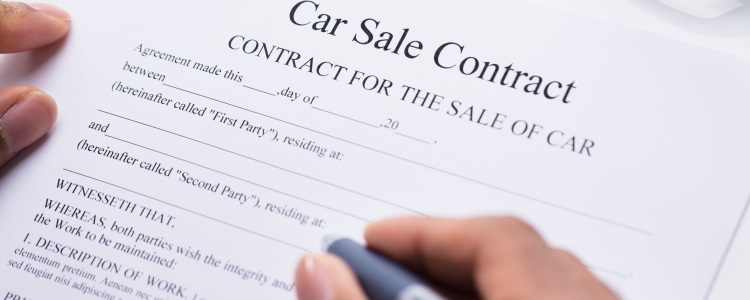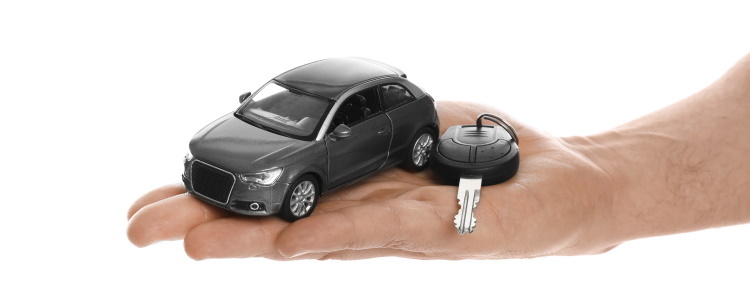If you plan on getting another vehicle, you may be wondering if you should sell your car or trade it in. Both are viable options that have pros and cons, and each can help you make a down payment if you plan on financing your next vehicle. However, one may be better suited for you than the other depending on a few different factors.
Before Trading in Your Car
 Before you jump the gun on getting rid of your current car, make sure you know how much it's worth. Check vehicle valuation sites such as Kelley Blue Book (KBB) and NADAguides, and get it appraised by at least two different dealerships. This way, you can decide if it’s better to trade it in or sell it privately using the numbers you were quoted.
Before you jump the gun on getting rid of your current car, make sure you know how much it's worth. Check vehicle valuation sites such as Kelley Blue Book (KBB) and NADAguides, and get it appraised by at least two different dealerships. This way, you can decide if it’s better to trade it in or sell it privately using the numbers you were quoted.
Still unsure which route to take? Let’s look at the pros and cons of trading in a car versus selling it privately.
Pros and Cons to Trading in Your Car
Many car owners choose to trade in their vehicle and use the equity toward a down payment. It’s a common practice that dealers and lenders are familiar with. Let’s check out why many Americans opt to trade in their car, and the major negative that comes with it:
The Good:
- Quick and easy process – When you trade in your vehicle, the dealership handles all the paperwork. All you have to do is bring in the proper documents, such as the title, the payoff letter if the title has a secured third party on it, and the registration slip if you plan on transferring the license plate.
- Potential tax benefits – Trading in a car means you have the potential for better tax benefits. In most states, you only need to pay sales tax on the difference between the trade-in’s value and the price of the new vehicle.
The Bad:
- May get less – Unfortunately, what the dealer is willing to buy your car for may not be the same as what KBB or NADAguides tells you its worth. Many dealerships use Black Book and auction values, and appraise trade-ins on what these sources say. You may be able to negotiate the price of your trade-in, but don’t be surprised if the dealer offers less than what you’re expecting.
Pros and Cons to Selling Your Car Privately
What about selling your vehicle privately? You can certainly go this route if you want. You don’t have to work with a dealership to negotiate on an appraised value, and can set the price on your terms. However, selling a car privately isn’t for everyone:
The Good:
- Can set your own price – The biggest benefit to selling a vehicle privately is that you can set the price. With no dealer setting its value, you can set the price as high as you feel it deserves to be.
- Easier to negotiate – On top of setting your own price, it’s often easier to negotiate with a potential buyer if you feel more comfortable doing this. Plus, you can negotiate on your terms, and don’t have to hurry up and close a deal.
The Bad:
- Process can be tedious – The biggest drawback is that selling a car can take a long time. Not only do you have to go through the actions of selling and negotiating, you need to prepare the vehicle, present it as best as possible, and handle the paperwork yourself.
The Bottom Line
Whether you choose to trade in your car or sell it privately, you can use the proceeds (once you pay any loan balance) toward the down payment on your next vehicle – which can help you get approved if you have bad credit.
If you recently sold your car and are looking for a dealership for your next purchase, or are looking for a dealer to work with during the trade in and car buying process, Auto Credit Express can help.
We can match you with a local special finance dealership that has the lenders available to handle challenging credit situations. Start the process right now by submitting our free and easy auto loan request form.
















